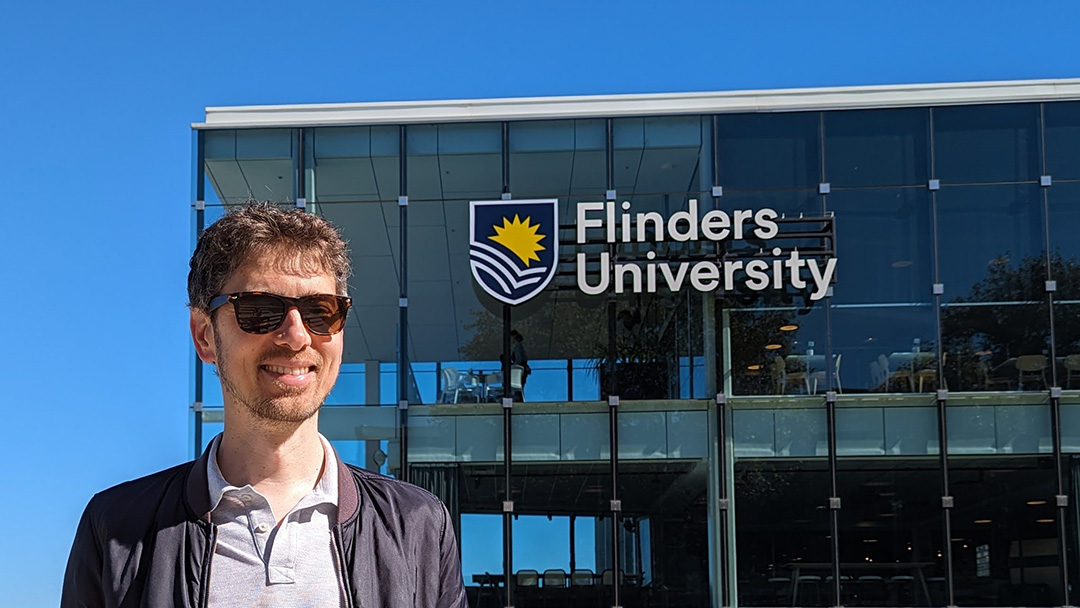
Introducing Professor Michael Sorich, a clinical epidemiologist, biostatistician, and pharmacist whose research focuses on the intersection of healthcare and cutting-edge technology. With a keen interest in leveraging generative artificial intelligence (AI) for health information tasks, he explores precision medicine through the use of markers to optimise treatment efficacy and safety. Specialising in machine learning, he predicts treatment outcomes in areas like anti-cancer medicine and develops AI-driven health applications to maximise patient benefits while addressing safety concerns. Additionally, Michael investigates liquid biopsy using extracellular vesicles to expedite drug development.
In 25 words or less, what your research is about?
My research utilises machine learning techniques to understand and predict the benefits and harms of anti-cancer medicines.
How do you believe your research will impact patient care or health outcomes?
My research aims to improve patient outcomes by guiding clinical decisions with biological markers and machine learning, ensuring the most effective use of medicines. I also aim to promote the safe and effective use of generative artificial intelligence (AI) for providing quality health information.
What do you enjoy most about being a researcher?
Working as a team to address difficult research challenges. In particular, helping research students and early career researchers develop their career and research skills.
Can you discuss any unexpected challenges or breakthroughs you’ve encountered during your research?
Recently, I have been surprised at how good generative AI is at generating health misinformation, and how poor the safeguards against misuse currently work. Although there are many ways in which generative AI is likely to improve health, there is also a need to mitigate the potential harms. Highlighting the risk of health misinformation with generative AI and seeking to improve safeguards has unexpectedly become a new area for my research [1].
What hobbies or interests do you pursue outside of your research work?
I enjoy hiking, playing computer games with my daughters (even though they are now so much better than me), and anything that involves spending time with my family and friends.
What advice would you give to aspiring health and medical researchers?
That research is most rewarding when undertaken as a team. One can tackle more challenging and rewarding questions as a team. It is also much more fun to share the research experience with others – to support each other during the challenging phases of research and to celebrate successes together.

